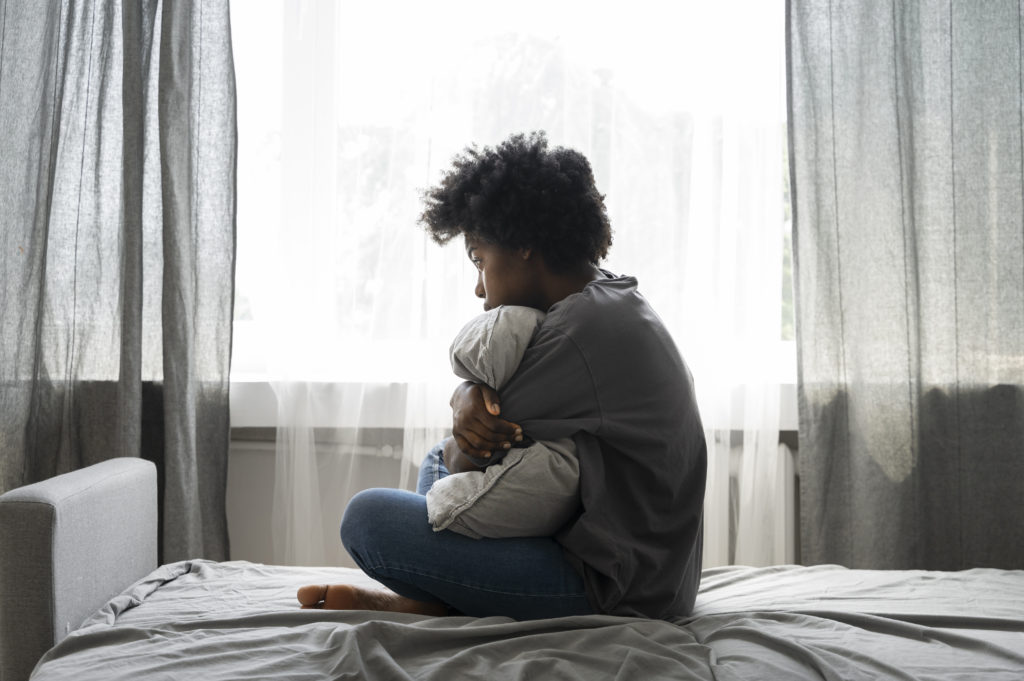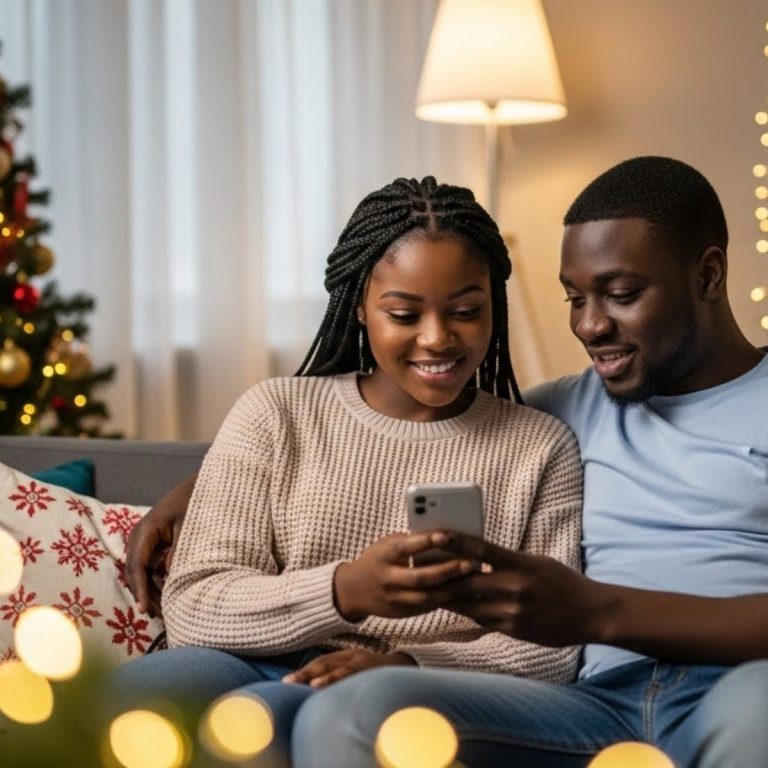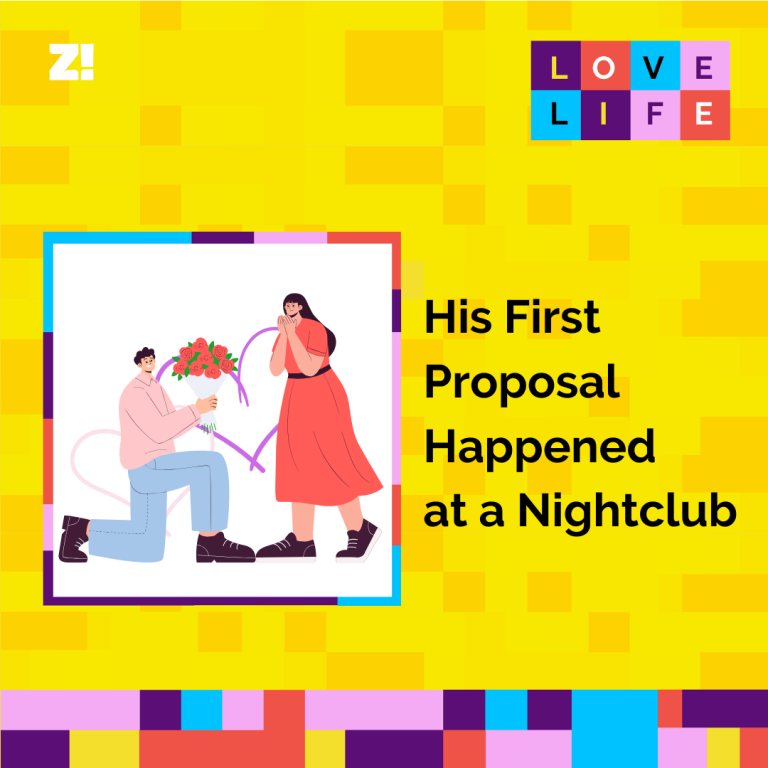I was looking to speak with women whose struggles with PCOS have affected their relationships when I found Ife*(31).
She shares how painful period cramps in university made her the centre of unwanted attention and ultimately robbed her of her closest friends.

As told to Adeyinka
There are many things I don’t like remembering about my experience in uni, but my painful periods top the list.
The first time I experienced extreme period cramps was in 200 level. I had just moved into a self-contained hostel with my coursemate, who had become my closest friend. Before then, my period pains were moderate and manageable, with felvin medication and tea usually doing the trick.
But this time, it was different. One morning, I woke up with heavy blood stains on my bed and excruciating pain in my lower abdomen. I brushed it off, thinking I had overindulged in sweets before my period, cleaned up, and took some felvin.
But as the day went on, the pain worsened, and I started feeling dizzy. I called my roommate, who had left earlier for class, to return and help me get to the clinic. I hated inconveniencing her, but we were practically like sisters at that point, and there was no one else I could have called.
At the clinic, the nurse asked if I’d ever had such intense pain before. I hadn’t. They gave me an injection, and within minutes, the pain subsided. I returned for a second dose the next day, and by the third day, everything seemed normal. I was relieved, thinking it was a one-time thing.
I had no idea the worst was yet to come.
The following month, the pain came back tenfold. It was indescribable—almost like someone clawing at my insides with nails. It was so bad that I woke up one morning on the floor clutching my stomach, screaming, crying and rolling back and forth.
My roommate panicked when she saw me. She rushed out of our room and returned with some other female hostel mates, but no one knew what to do until someone suggested taking me to the clinic again. I can’t remember the events that played out afterwards, but I woke up later at the clinic with my roommate by my side. She’d called my parents, and as soon as I was awake, she redialed them so I could speak to them.
After that episode, the pain became a regular occurrence. I started dreading my period because it came with embarrassment. Everyone in the hostel always knew when I was on my period because of the constant screaming. Even some okada riders and nurses knew me on a first-name basis.
I became a “monthly regular” at the clinic, and people began making weird remarks. One nurse even suggested that I might have a “spirit husband” causing the pain and invited me to her church for deliverance. Although I didn’t pay much mind to her, there were times I considered the possibility of the entire thing being spiritual.
While all these went on, I started to notice a shift in my roommate. She was always there when I wasn’t on my period, but when it started or she knew it was almost my time of the month, she would make herself unavailable.
She’d stay with another friend for an entire week or come home very late on the days she chooses to stay in the hostel. I could’ve sworn she was monitoring my cycle because her timing for the visits and long nights always seemed too much of a coincidence.
I was hurt and lonely but also understood. Once, I fainted during a bad episode, and my roommate was really freaked out. I woke up to people in my room and she was in a corner crying. That week, she didn’t really say much to me, she just became distant.
When we had a conversation, she admitted she was scared, saying she didn’t know what she would’ve done if something worse had happened. Honestly, I don’t think her reaction was far-fetched—there were times I thought the pain would kill me.
It wasn’t just my roommate who withdrew. Some of my other friends also distanced themselves. I always tell myself that it wasn’t out of malice or callousness; they were just scared and didn’t know how to help. Looking back, I can’t blame them. We were all in our early twenties, and none of us had the experience to deal with such health emergencies.
After 200 level, my roommate moved out of the hostel. She made excuses about needing privacy because she was dating, but I knew the real reason. We didn’t talk much after that because I still felt hurt by her decision to move out.
In 2018, during my NYSC, I was finally diagnosed with PCOS. A women’s health NGO came to camp offering free consultations, and they referred me to a specialist hospital after hearing my symptoms.
Since starting medication and making some lifestyle changes, the pain has lessened, but there are still days when it gets bad. I scared my husband two years ago when the pain hit in the middle of the night. He had to call some of our older neighbours for help. But at least with him, I know he won’t up and leave like my friends did.
Are you looking for more information about PCOS? Famasi Africa has worked on a resource, and it’s full of practical tips and essentials for Nigerian women navigating PCOS. Find it here.
Read this next: A Fake Genotype Result Cost Me the Love of My Life




